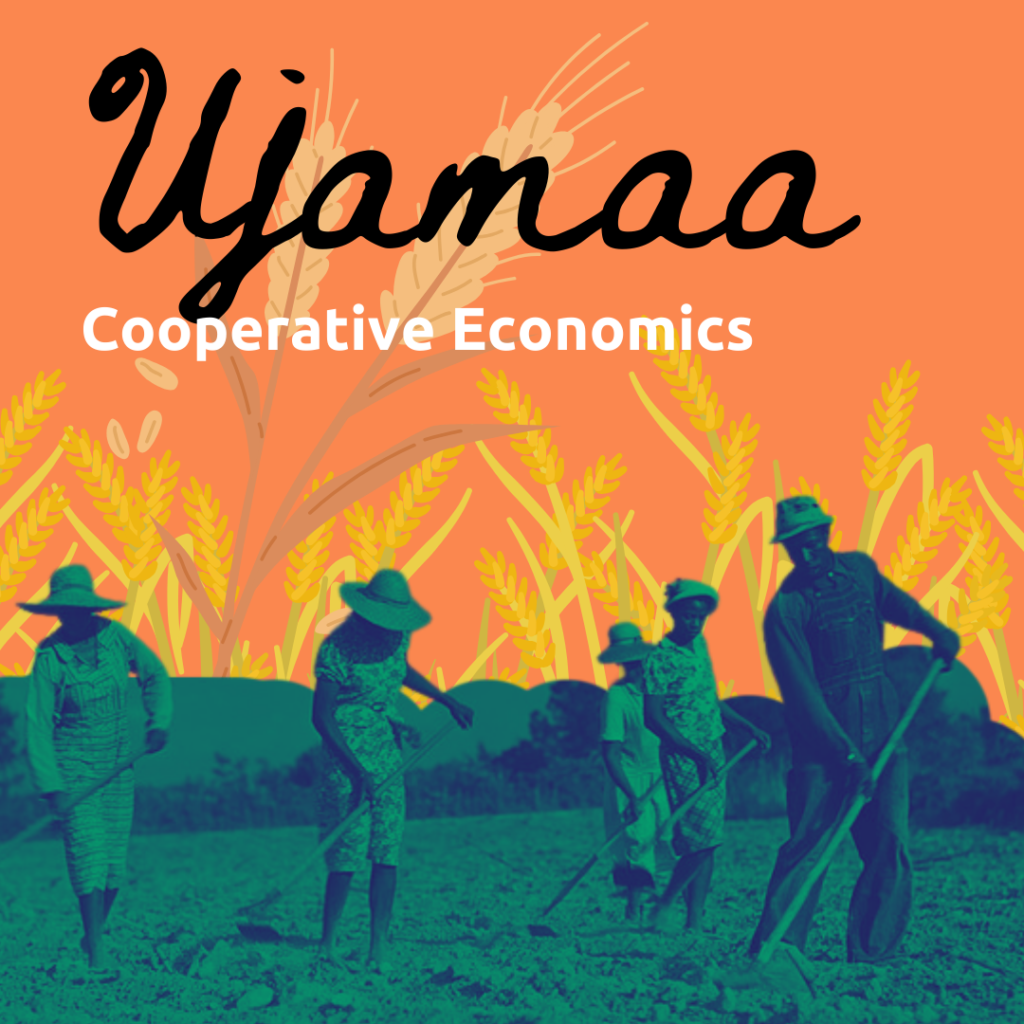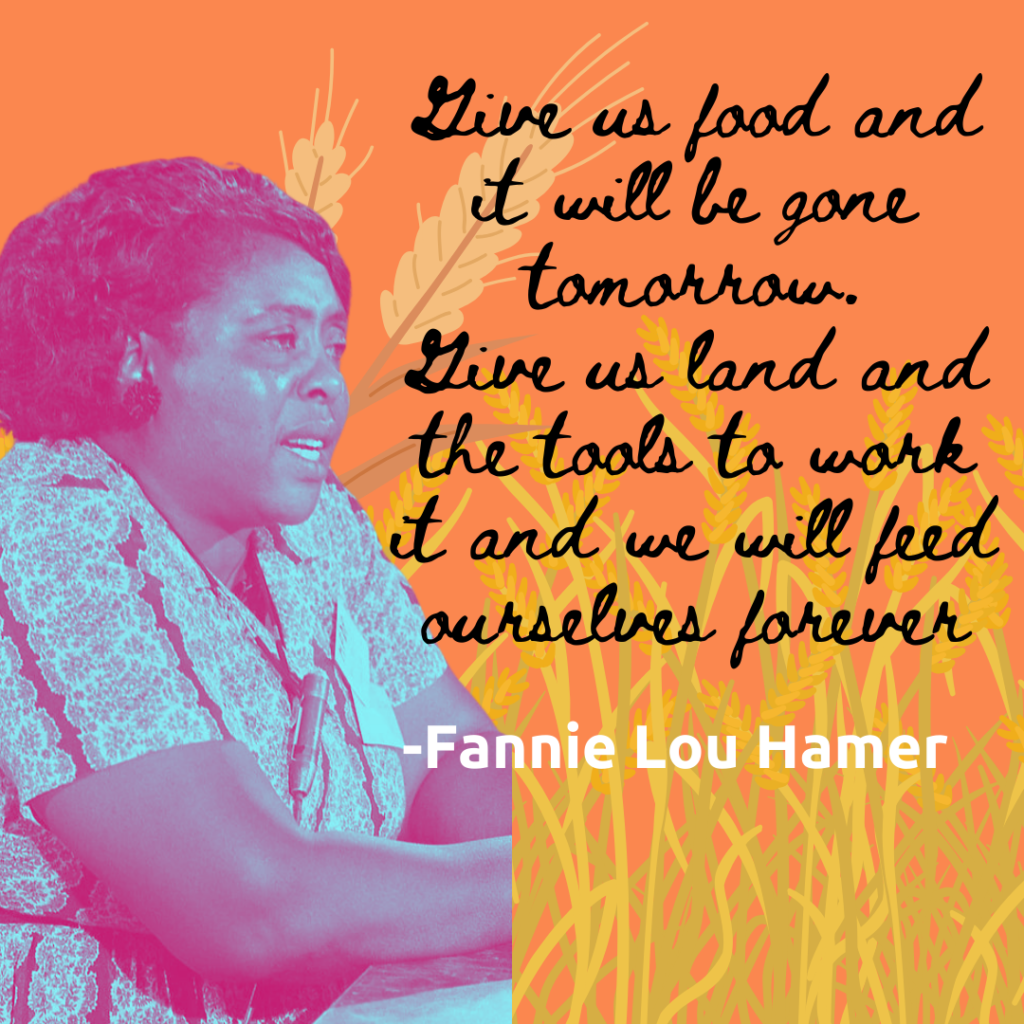
Defined: To build and maintain our own farms, gardens, clinics, and cooperatives to access collective abundance.
"Give us food and it will be gone tomorrow. Give us land and the tools to work it and we will feed ourselves forever."
- Fannie Lou Hamer, founder of Freedom Farm Collective
What is an economy? An economy is a system of interrelated production and consumption activities that ultimately determine the allocation of resources within a group.

So much of modernity is premised on the idea of scarcity. Look to any American Economics textbook and Scarcity is the governing principle for allocating and distributing resources in “first world” economies. “There is not enough, so we must ration it accordingly.” Then comes the question of who should get these (scarce) resources and who should get to distribute them. It’s easy to find the answer in history and our present lived experience. Who gets to lay ownership over the abundant resources that the Earth provides? Who gets the scraps of a capitalist economy? Who are the ones who cannot afford their rent? The ones who don’t have access to fresh produce?
This is the governing ethic of capitalism: to win, someone else must lose.
The principle of Ujamaa invites us to begin to challenge this false dichotomy.
Being raised in Black, poor, and working-class households, the idea that we could only count on ourselves for our survival dyed the fabric of our upbringing. We may have internalized that we were not worthy (of happiness, of care, of attention, of love, etc) because of what we could or could not afford, the care we did or did not receive, access to resources, or lack thereof. We may presently, on a subconscious level, locate our value in how much money we can make, or how useful we can be to others (while disregarding our needs and wants), or even other people’s perceptions of us. This is how the psychology of capitalism works.
How can we begin to reprogram our collective psychology towards a win-win ethic?
The invitation of Ujamaa lies in remembering that the Earth should not have to lose for humanity to “win” and remembering that Our abundance is directly related to the abundance of the Earth.
Remembering the gift economies of our Black/Indigenous ancestors.
Remembering that community-controlled resources restores our dignity and promises our collective liberation.
Remembering that we’ve had the tools to save ourselves all along.
Care Reflections
Where did you first learn the idea of competition? What were the material conditions that created that competitiveness / not-enoughness?
What does rebuilding our relationships with the land look like?
What is our relationship to the ecology of our neighborhoods? Where do you notice ingrained colonial attitudes of control and domination?

-Images & Writing By Vic Collins
